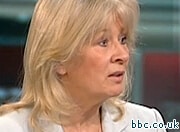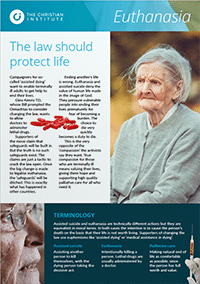The wife of a TV executive who had brain cancer has said she is thankful that the law protects vulnerable people, after her late husband’s doctor declined his request for assisted suicide.
Kathy Gyngell, of the Centre for Policy Studies, spoke of her experience caring for her husband Bruce, in a piece for the Daily Mail.
She said she is thankful “that the choice to end Bruce’s life was not available to us, that we were protected by the law and there was no pressure on me to make an unbearably difficult decision”.
Weakened
Her comments came as the Supreme Court heard a high-profile case last month involving people who want to see end-of-life laws weakened.
The late TV executive Bruce Gyngell had been suffering with brain cancer for more than a year when Mrs Gyngell overheard him trying to ask his doctor to help him die.
She said she felt his “despair” and “helplessness”, but “when the doctor came downstairs, his calm certainty gave me strength”.
Inconceivable
“For, like him, I knew that helping my husband to die was not just inconceivable — it was wrong, horrible and immoral”, she added.
Mrs Gyngell said her reaction to her husband asking for assisted suicide was to increase her efforts to care for him.
When he tried to refuse food and medication, Mrs Gyngell told him he was surrounded by much care and love – he then gave in and accepted the help. He lived for a further three months.
Honour
She said: “Did I fail him in refusing to honour his request? I don’t think so.”
“Although he could not speak and had lost much of his hearing and his sight, too, at the end, I still wanted him to live”, she said.
Mrs Gyngell said a change in the law would put pressure on other people to assist in the suicide of a loved one.
Interests
Referring to the case in the Supreme Court heard last month, she said the law is not there “to be pulled apart by individuals or groups with special interests”.
“The only humane approach is to look after someone until their last moments and give them the best palliative care possible, however great the demands this may place on a society.”
Nine judges in the Supreme Court heard the case involving the family of Tony Nicklinson – who died in 2012 and could only communicate by blinking and nodding – and Paul Lamb, who is paralysed.


